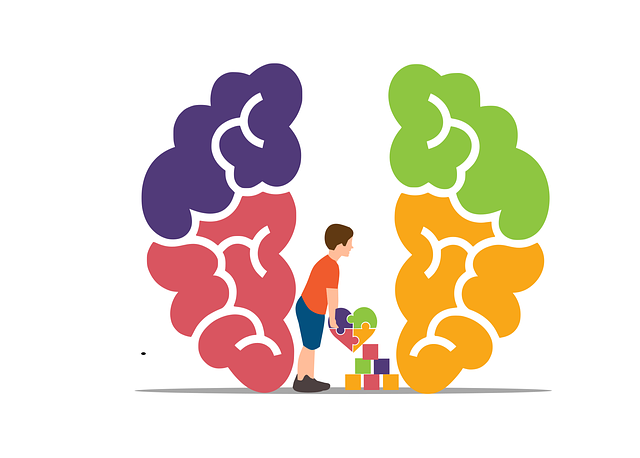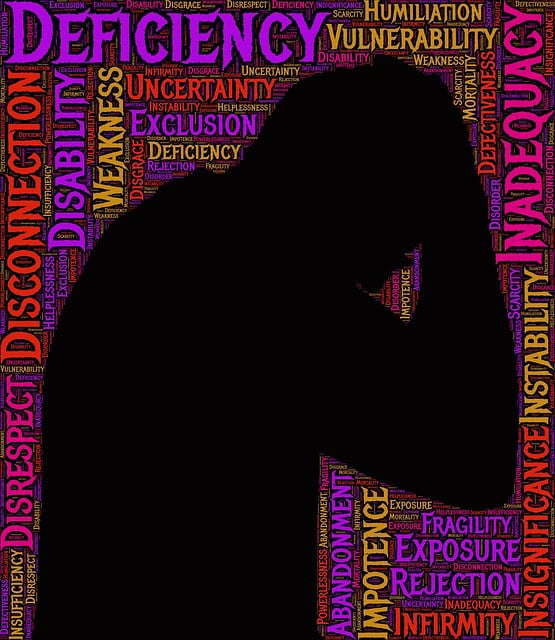Specialized programs like Lakewood Abuse Survivors Therapy (LAST) are vital for addressing the unique needs of trauma and abuse survivors in today's mental health landscape. LAST offers tailored interventions, holistic healing, and coping strategies to empower clients. Effective coaching incorporates resilience-building techniques, stress management, emotional regulation, and positive self-talk, breaking down stigma. Personalization, adaptability, evidence-based practices, and empathy are key to successful programs like LAST, which support clients in reclaiming personal power and leading fulfilling lives. Regular evaluation ensures progress and enables coaches to refine their methods for individual needs.
Mental wellness coaching programs are gaining traction as effective tools for personal growth. This article delves into the development of specialized programs, focusing on a case study of Lakewood Abuse Survivors Therapy (LAST). We explore key components that contribute to success, emphasizing customization and individualized support. Furthermore, it provides practical strategies for coaches and clients during implementation, and discusses evaluation methods to measure progress. By learning from LAST’s approach, we can enhance mental wellness coaching effectiveness.
- Understanding the Need for Specialized Programs: A Look at Lakewood Abuse Survivors Therapy
- Key Components of Effective Mental Wellness Coaching
- Designing a Program Framework: Customization and Individualized Support
- Implementation Strategies for Coaches and Clients
- Measuring Success: Evaluation and Continuous Improvement in Mental Wellness Coaching
Understanding the Need for Specialized Programs: A Look at Lakewood Abuse Survivors Therapy

In today’s complex world, the mental health landscape demands specialized programs to cater to unique needs. One such example is Lakewood Abuse Survivors Therapy (LAST), which highlights the critical gap in support for individuals who have experienced trauma and abuse. LAST recognizes that traditional therapy approaches may not adequately address the specific challenges faced by these survivors, thus emphasizing the need for tailored interventions.
By focusing on the intricate relationship between past traumas and present-day mental health struggles, programs like LAST facilitate a holistic healing process. This involves helping individuals develop effective self-care routines to improve their overall well-being, including stress reduction methods and depression prevention strategies. Through specialized coaching, survivors can navigate their unique journeys, gaining tools to cope with challenges and fostering a sense of resilience.
Key Components of Effective Mental Wellness Coaching

Effective mental wellness coaching programs are meticulously designed to cater to a client’s holistic well-being, focusing on several key components. One of the primary aspects is Resilience Building, equipping individuals with coping mechanisms to navigate life’s challenges. Through tailored strategies and techniques, coaches foster an attitude of resilience, enabling clients to bounce back from setbacks and maintain mental equilibrium. This involves teaching effective stress management, emotional regulation skills, and positive self-talk, which are essential tools in the journey towards mental wellness.
Additionally, Mental Health Education Programs Design plays a pivotal role. Educating clients about common mental health issues breaks down stigma and encourages open conversations. Coaches provide valuable insights into various therapeutic approaches, helping individuals understand their unique needs. By combining this knowledge with practical exercises, coaches empower clients to take charge of their mental health. For those with a history of Lakewood Abuse Survivors Therapy, these programs offer a safe space for processing traumatic experiences, building Confidence Boosting mechanisms, and reclaiming personal power.
Designing a Program Framework: Customization and Individualized Support

In designing a mental wellness coaching program like Lakewood Abuse Survivors Therapy, customization and individualized support are paramount. Each client’s journey is unique, shaped by their personal history, experiences, and current challenges. A successful framework must allow for flexibility, recognizing that one-size-fits-all approaches rarely resonate with diverse populations. This involves adapting strategies to cater to specific needs, whether focusing on trauma healing, depression prevention, or enhancing communication strategies and emotional intelligence.
The program should offer a structured yet personalized experience, guiding participants through tailored modules designed to foster growth and resilience. Incorporating flexible formats, such as one-on-one sessions, group workshops, and digital resources, allows for a multi-faceted approach. By combining evidence-based practices with empathy and adaptability, the coaching program can effectively support clients in navigating their mental wellness journeys, ultimately empowering them to lead more fulfilling lives.
Implementation Strategies for Coaches and Clients

Implementing effective mental wellness coaching programs requires a strategic approach tailored to both coaches and clients. Coaches play a pivotal role in guiding individuals through personalized journeys towards emotional well-being promotion techniques. They must be adept at establishing safe, non-judgmental spaces while integrating evidence-based practices aligned with the client’s unique needs. This involves understanding the client’s history, particularly any past trauma or challenges, such as those experienced by Lakewood Abuse Survivors Therapy clients, to ensure culturally competent support.
For clients, engagement in these programs demands commitment and openness. They should be empowered to set realistic goals and actively participate in sessions. Incorporating self-care practices and stress management techniques can significantly enhance the program’s impact. Additionally, regular check-ins with healthcare providers, who may offer valuable insights through cultural competency training, can ensure clients receive holistic care tailored to their specific circumstances.
Measuring Success: Evaluation and Continuous Improvement in Mental Wellness Coaching

Measuring success is a vital component of any mental wellness coaching program, ensuring that progress is tangible and effective. Evaluation methods play a crucial role in understanding the impact and quality of the coaching sessions. By employing various assessment tools, coaches can gain insights into clients’ improved coping strategies, enhanced emotional regulation, and increased resilience. This data-driven approach allows for continuous improvement, enabling coaches to refine their techniques and tailor interventions to individual needs.
For instance, at Lakewood Abuse Survivors Therapy (LAST), success is not just about achieving short-term goals but fostering long-lasting inner strength development. Regular feedback sessions, client self-assessments, and progress reports help in gauging the effectiveness of coaching programs. Integrating these evaluation methods into the coaching process facilitates a Mental Health Policy Analysis and Advocacy approach, where successful strategies can be shared and implemented on a larger scale, ultimately benefiting a wider community.
The development of mental wellness coaching programs, as highlighted by case studies like Lakewood Abuse Survivors Therapy, is a vital step towards addressing unique psychological needs. By incorporating customizable frameworks and individualized support, these programs offer hope and healing to those facing challenges. Effective implementation strategies ensure that coaches and clients work together collaboratively, fostering growth and resilience. Continuous evaluation and improvement are key to refining these programs, ultimately enhancing the mental wellness of participants.













